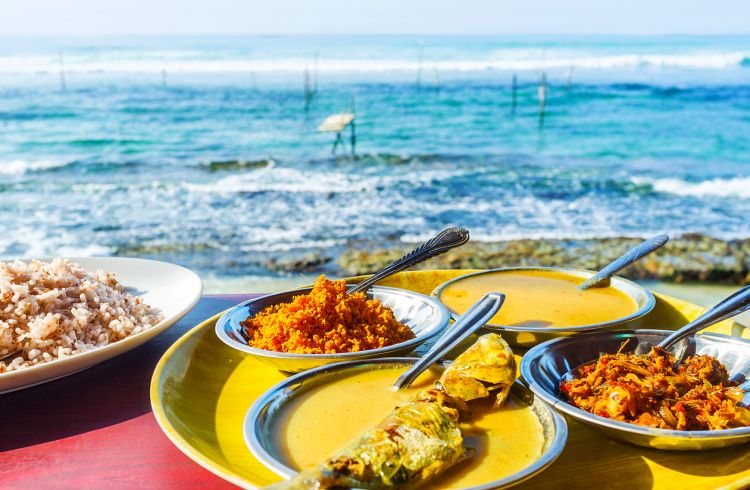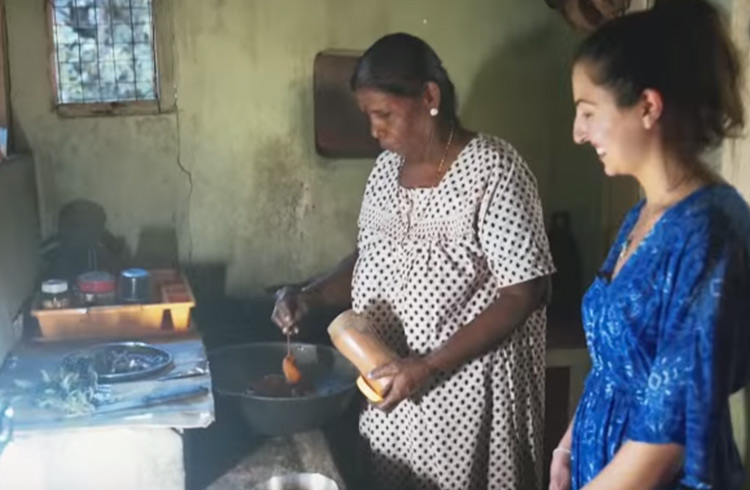How to Stay Healthy While Traveling Around Sri Lanka
Like any developing nation, Sri Lanka has its share of health issues. Find out how you can avoid traveler's diarrhea, dengue fever and more while traveling.
 Photo © iStock/efesenko
Photo © iStock/efesenko
Health is a long-standing Sri Lankan Government priority and the United Nations (UN) Millennium Development Goals (MDGs) have been attained nationwide although there are still regional disparities.
According to the World Health Organisation, the general health status of the Sri Lankan population is good overall.
Most travelers get a dose of traveler's diarrhea or travel around relatively unscathed and illness free. But here are some things to consider so you can experience the country as safe and healthy as possible.
- Medical services in Sri Lanka
- Vaccinations for Sri Lanka
- Malaria in Sri Lanka
- Other diseases in Sri Lanka
- Can I drink the water in Sri Lanka?
- Heat issues in Sri Lanka
Medical services in Sri Lanka
Fortunately, Sri Lanka has an extensive network of public health clinics and hospitals.
Most people live within 3 miles of a health facility. However, decentralization is incomplete, with excessive reliance on tertiary and secondary level hospitals usually operating with a lack staff and poor service quality.
While health care is provided free of charge, this is becoming difficult to sustain but for visitors, there are plenty of private hospitals where medical care is still cheap by Western standards and the quality is high. Medical facilities outside of Colombo are very limited, especially for more serious medical situations.
Medications you would normally take at home may not be available in Sri Lanka, so pack all you need along with a doctor's letter outlining what their use is, how much etc. Check also with your local Sri Lankan embassy as some medications considered legal in other countries may be illegal there.
For those planning to scuba dive while in Sri Lanka, a hyperbaric (decompression) chamber is available at the Sri Lankan Navy Base in Trincomalee.
Vaccinations for Sri Lanka
Aside from making sure those routine vaccinations are up to date, the recommended vaccinations for travel to Sri Lanka are:
- Hepatitis A
- Typhoid (if your trip is longer than a week or planning to head to rural locations)
- Japanese Encephalitis (if you plan to spend a month or longer in the country, particularly traveling outside urban places)
- Tuberculosis (The risk to travelers is pretty low however if you are planning to stay in the country for a long period of time e.g aid worker or volunteering, you may want to consider being vaccinated)
- Rabies (For those planning to do adventure activities outside of the cities, potential interactions with animals or children)
Malaria in Sri Lanka
Malaria, as in most developing nations, is a big killer. However, Sri Lanka celebrated the eradication of Malaria from its shores in 2016. The Sri Lankan government has spent huge amounts of money in protecting communities at risk of the disease, and it seems to have worked so far.
Dengue Fever
2017 saw Dengue Fever ravage Sri Lanka and by the end of the year, over 185,000 cases of dengue fever were recorded in Sri Lanka, with a large proportion in the Western Province where Colombo and Negombo are located. This is more than twice the number of people diagnosed in 2016!
This outbreak has been exacerbated by flooding due to heavier rainfalls and it's much worse in heavily populated areas such as Colombo.
Unlike malaria, the mosquito that transmits dengue fever generally comes out during the day, so it is always worth being vigilant by trying to avoid stagnant water in creeks, ponds and pots, wearing plenty of DEET insect repellent and covering up as much as possible.
Traveler's diarrhea
Probably the most likely illness travelers will experience as it's contracted via contaminated food and water plus poor good hygiene practices. Symptoms include watery diarrhea, dehydration, cramping and occasional vomiting. If you feel unwell, seek medical help as antibiotics will generally knock it on the head pretty quickly. Worst case scenario is that you spend a few days in hospital.
You can try to avoid catching it by taking precautions such as:
- Don't drink or the local tap water, stick to treated or boiled water. Even avoid it when brushing your teeth.
- Visit cafes, restaurants and street vendors who are busy, have a high turnover and look clean
- Making sure food is cooked thoroughly before eating
- Eating fruits and vegetables you can wash and peel yourself
- Avoiding ice cubes and icy drinks especially if traveling in areas outside the main tourist hubs
- Always practice good hygiene while traveling
Make sure you have anti-diarrhea medication in your travel first aid kit particularly if you are traveling to more rural locations.
Other diseases in Sri Lanka
If you are entering Sri Lanka from any country which has Yellow Fever or Cholera present, you will need to present proof of vaccination.
Hepatitis A
Like typhoid, it's transmitted via contaminated food and water but also through poor hygiene practices. It's a condition which affects your liver, however, most who are infected tend to recover without lasting liver damage. Avoid unpasteurized dairy, make sure hot food is cooked thoroughly, avoid ice cubes and icy drinks, ensure fruit and veg you eat is washed in safe, clean water or you can peel it yourself. Observing good hygiene also helps to prevent potential infection.
Typhoid
Travelers risk catching typhoid via contaminated food and water. The disease progresses slowly with a high fever and headache, along with stomach pain, muscle pain, dehydration, diarrhea, fatigue and skin rash.
As these symptoms are indicative of other conditions, it's best to head to hospital to get treated for the correct condition and if it's typhoid, you will need antibiotics.
Chikungunya
A mosquito-borne viral disease first discovered during an outbreak in southern Tanzania in 1952. It's related to Ross River Fever and spread by the two mosquitos which also spread dengue fever. The name "chikungunya" derives from a root verb in the Kimakonde language, meaning "to become contorted" and describes the stooped appearance of sufferers with joint pain. Along with the joint pain, people experience fever, skin rashes, headache and fatigue.
So if you get some unusually sore joints - you may want to check it out.
Tuberculosis
Sri Lanka has made headway when it comes to treating this disease and does better than some of its other southern Asian neighbors. It's an airborne condition which is easily transmitted via infected persons and other factors such as tobacco use, poor sanitation and living conditions. Over 8000 cases of TB were reported in 2016 however incidences of the disease in travelers is low.
Can I drink the water in Sri Lanka?
Unfortunately, you can't drink the water in Sri Lanka as most of the supply is unsafe. It is advised that drink boiled or treated water to avoid any potential gastro bugs. Same goes for any fruit and veg you plan to eat, wash it only in treated or boiled water or peel it. Avoid ice cubes and icy drinks as well.
Heat issues in Sri Lanka
Being located close to the equator, Sri Lanka has a hot tropical climate which can give travelers a bit of a challenge when it comes to staying cool, hydrated and avoiding heat-related illnesses. It has a relative humidity of 60 - 90% all year round depending where you are and it can take some time to adjust to the conditions.
Sunburn
While Sri Lanka may have plenty of sunshiney days, you can still get burnt on the overcast ones too. Remember to apply a broad-spectrum sunscreen, wear a hat, sunnies and long-sleeved clothing. Try to avoid activities during the hottest part of the day between 11am and 3pm.
Prickly Heat
Caused by sweat being trapped under the skin, this condition is common in tropical climates like Sri Lanka's and appears like a rash with small blisters in areas such as the groin, armpits and neck. Be sure to shower frequently and stay out of the heat as much as possible. Pack a hydrocortisone cream in your bag or use the locally available powder which can provide relief.
Heat Stroke & Exhaustion
Symptoms include weakness, increased sweating, headache, slightly higher than normal body temperature and irritability. You can treat this by getting out of the sun, cooling down in a cold bath/shower or applying cool towels to the skin, laying flat with legs raised to maximize blood flow around the body. Rehydrate using room temperature water and sports drinks.
If you start to feel dizzy, confused, uncoordinated and significantly hotter than normal, you may have heatstroke which is more serious. It can cause you to collapse and lose consciousness. Seek medical treatment urgently and start to cool down by removing clothes and applying cool wet towels to the body focusing on the groin and armpits until medical help arrives.
Related articles
Simple and flexible travel insurance
You can buy at home or while traveling, and claim online from anywhere in the world. With 150+ adventure activities covered and 24/7 emergency assistance.
Get a quote
No Comments